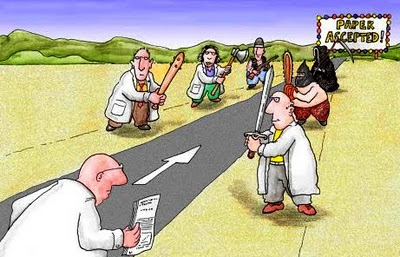
Peer Review is a process that gives an article more credibility. It's quality control!


If you still have questions, ask a librarian.
First things first: not all articles can be peer-reviewed. If the article in question is any of the following, it is not peer-reviewed:
You should check to see if the periodical/ magazine/ journal your article is from even publishes peer-reviewed articles to begin with.
Search for the periodical/ magazine/ journal in Ulrichsweb. If it's peer-reviewed, you'll see this 
If the publication isn't listed in Ulrichsweb, look it up in DOAJ.
If you're still not sure, ask a librarian.
Did you know a lot of databases that have peer-reviewed articles let you filter your search to just peer-reviewed articles?
Look for options and filters like these:

If you're still not sure, ask a librarian.
Check out the tabs in this box ^^^ for how to attack each part of the CRAAP Test.
The video below gives a nice overview of the whole thing.
If you still have questions, ask a librarian.
If you still have questions, ask a librarian.
If you still have questions, ask a librarian.
If you still have questions, ask a librarian.
If you still have questions, ask a librarian.
If you still have questions, ask a librarian.
| 500 W. University Avenue : El Paso, TX, 79968-0582 : (915) 747-5672 |